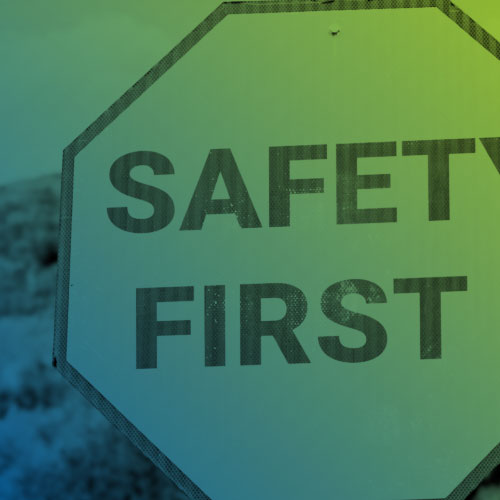
Preventing Accidents on South African Roads: The Role of Commercial Vehicle Cameras
Road accidents are a significant problem in South Africa, with many fatalities and injuries reported yearly. In 2019 alone, over 12,700 people died on South African roads, which is alarming. Various measures have been taken to address this issue, including stricter traffic laws, awareness campaigns, and the use of advanced technology such as commercial vehicle cameras.
Commercial vehicle cameras, otherwise known as Vehicle Video Telematics, are becoming increasingly popular in South Africa due to their effectiveness in accident prevention and risk mitigation. These cameras are installed in and around commercial vehicles, including buses, trucks, and taxis, to capture footage of the road ahead, the vehicles’ surroundings, and the driver’s behavior. This information is then used to analyze driver behavior, identify potential risks, and prevent accidents.
The Importance of Commercial Vehicle Cameras in Accident Prevention
Commercial vehicle cameras play a crucial role in accident prevention as they provide real-time monitoring of the driver, the road ahead, and the vehicle’s surroundings. Different types of commercial vehicle cameras are available, including dash cams, front-facing cameras, and side-view cameras. These cameras are designed to capture footage of the road and the driver’s behavior from different angles as well as the exterior of the vehicle, providing a comprehensive view of the situation or incident.
Commercial vehicle cameras record and store video footage of the driver and the road. This footage is then analyzed using advanced algorithms and artificial intelligence to identify any risky behavior, such as sudden braking, swerving, or distracted driving. The camera’s data is then transmitted to a central server, which fleet managers, insurance companies, and law enforcement agencies can access. The Cameras can also be live-streamed to any device anytime from anywhere.
Benefits of Commercial Vehicle Cameras in Accident Prevention
Commercial vehicle cameras benefit fleet operators, drivers, and other road users. Here are some of the key benefits of commercial vehicle cameras in accident prevention:
Increased Driver Accountability
Commercial vehicle cameras hold drivers accountable for their road actions, which helps improve driver behavior and reduce the risk of accidents. With cameras installed in their vehicles, drivers are more likely to follow traffic rules, avoid distractions, and drive more safely.
Improved Driver Behavior
Commercial vehicle cameras also help to improve driver behavior by providing real-time feedback and alerts. Drivers can receive instant alerts if they engage in risky behavior, such as speeding, harsh braking, or swerving. This feedback helps them to correct their behavior and become safer drivers.
Reduced Insurance Costs
Using commercial vehicle cameras can also reduce insurance costs for commercial vehicle operators. Insurance companies offer discounts to operators who use these cameras, as they help to reduce the risk of accidents and claims. Operators can lower their insurance premiums by installing commercial vehicle cameras and save money in the long run. Vehicle cameras also assist in the claims process, identifying what happened, how it happened, and who the responsible parties are.
Enhanced Fleet Management
Commercial vehicle cameras also help with fleet management by providing real-time data on vehicle performance, driver behavior, and fuel consumption. This data can be used to optimize fleet operations, reduce fuel costs, and improve overall efficiency.
Conclusion
In conclusion, the benefits of commercial vehicle cameras in accident prevention are numerous and significant. They provide increased driver accountability, improved driver behavior, reduced insurance costs, and enhanced fleet management. By holding drivers accountable for their actions and providing real-time feedback and alerts, cameras help to promote safer driving practices and reduce the risk of accidents. Furthermore, insurance companies offer discounts to commercial vehicle operators who use these cameras, which can result in significant cost savings in the long run. Overall, the use of commercial vehicle cameras is a valuable investment for fleet operators, drivers, and other road users in South Africa, as they contribute to creating safer roads and reducing the likelihood of accidents.
FAQ
- Are commercial vehicle cameras legal in South Africa? Yes, commercial vehicle cameras are legal in South Africa. However, there are some regulations that operators must follow, such as ensuring that the cameras do not violate the privacy of drivers and passengers.
- Can commercial vehicle cameras reduce insurance costs? Yes, commercial vehicle cameras can reduce insurance costs for commercial vehicle operators. Insurance companies offer discounts to operators who use these cameras, as they help to reduce the risk of accidents and claims.
- How do commercial vehicle cameras work? Commercial vehicle cameras record and store video footage of the driver and the road. This footage is then analyzed using advanced algorithms and artificial intelligence to identify any risky behavior, such as sudden braking, swerving, or distracted driving.
- Do commercial vehicle cameras improve driver behavior? Commercial vehicle cameras can improve driver behavior by providing real-time feedback and alerts. Drivers can receive instant alerts if they engage in risky behavior, such as speeding, harsh braking, or swerving. This feedback helps them to correct their behavior and become safer drivers.
- What are the benefits of commercial vehicle cameras? The benefits of commercial vehicle cameras include increased driver accountability, improved driver behavior, reduced insurance costs, and enhanced fleet management. These cameras provide real-time monitoring of drivers and the road ahead, which helps to prevent accidents and improve overall efficiency.
- How long is the footage stored on commercial vehicle cameras? The length of time that footage is stored on commercial vehicle cameras can vary depending on the type of camera and the storage capacity. Some cameras can store footage for several weeks, while others may only store footage for a few days.
- Can commercial vehicle cameras be used in all types of weather conditions? Yes, most commercial vehicle cameras are designed to withstand various weather conditions, including rain, snow, and extreme temperatures. However, it is crucial to choose a camera suitable for your area’s specific weather conditions.
- Can commercial vehicle cameras be used in any commercial vehicle? Yes, commercial vehicle cameras can be used in a wide range of commercial vehicles, including trucks, buses, taxis, and delivery vans. These cameras are suitable for any vehicle where safety and efficiency are concerned.
- Are commercial vehicle cameras effective in reducing accidents? Yes, commercial vehicle cameras are highly effective in reducing accidents on South African roads. These cameras provide real-time monitoring of drivers and the road ahead, which helps to prevent accidents and improve overall safety.
- Can commercial vehicle cameras be used to monitor driver fatigue? Yes, some commercial vehicle cameras are equipped with advanced features that can detect driver fatigue, such as eyelid tracking and head movement detection. These features help to prevent accidents caused by drowsy driving.


